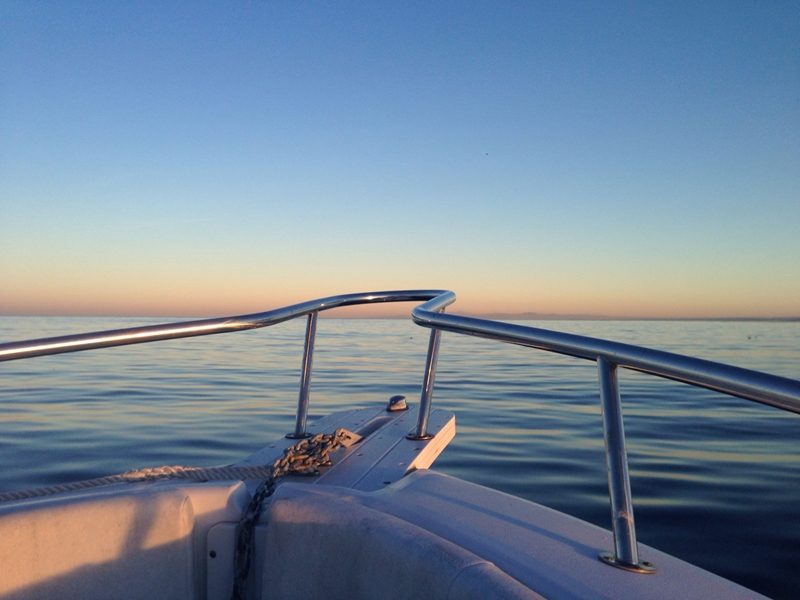
Individuals all over our country love to spend time in their boats. Because we live on an island nation, water has forever been a part of our way of life. These days, we view boating as a fantastic way to spend time with family and friends, enjoying calm seas, great views and even adventurous sports on lakes, ponds and the ocean.
However, as anyone who has ever spent time in watercraft of any sort, whether you're talking about a powerboat, a kayak, or even a paddle boat knows, safety always comes first. A fun day can turn dodgy quickly if you don't know what you're doing or you're not properly outfitted in the correct gear. This is why there are rules and regulations in place that keep everyone safe.
One of these laws involves having a license, which requires testing and hours spent behind the helm of a watercraft. However, if you're an amateur on the water, that's not always necessary, as long as you're smart and safe and know what you're doing. But if you want to drive a larger boat and entertain many guests, do you know what your limits are before you need to invest in a license?
Let's explore what your options are before you commit to purchasing a large watercraft, because the rules vary greatly between the states and territories within Australia.
New South Wales (NSW) and Australian Capital Territory (ACT)
NSW and ACT have the same laws when it comes to boating license requirements, according to Club Marine. As Roads & Martine Services of NSW explained, the license laws in this state actually have nothing to do with the size of the vessel. Instead, it is the speed that determines the license requirement - if you plan to drive a boat at more than 10 knots, or more than 18 kilometres per hour, you will need a general boating license.
Moreover, if you drive a personal watercraft (PWC) in NSW or ACT, you need a separate credential, called the PWC driving license.
Northern Territory (NT)
NT's boating license requirements are very simple: According to Club Marine, there are currently no recreational laws that require individuals to carry credentials to drive a boat.
Queensland (QLD)
In QLD, it's not the size of the boat that comes into play, but rather the engine power. Queensland Government specified that any Queensland regulated ship with engine power of more than 4.5 kilowatts must be operated by someone with a license. Moreover, the operator must maintain both a recreational marine and a personal watercraft license.

South Australia (SA)
In SA, everyone planning on driving a boat with an engine, no matter the size, must be licensed before taking the help, according to the Government of South Australia.
There are some exemptions, however, including those with commercial qualifications like a coxswain or master certificate, or those operating a kayak with an engine if they're above the age of 16.
Tasmania (TAS)
In TAS, Marine & Safety Tasmania said, all individuals who wish to drive boats that boast at least 4 horsepower or more must hold a motor boat license. This does not apply to hire and drive vessels, only to those who do so recreationally. They would have to complete a practical safety course at a cost through an accredited provider, and renew after a three-year period.
Victoria (VIC)
As the State Government of Victoria explained, everyone operating a powered recreational boat in the state of Victoria, no matter the size of the boat, must hold a license. Whether you're driving a large yacht or a canoe powered by a small engine, you must hold the proper credentials and carry them with you while in operation, thanks to the passage of the state's Marine Safety Act. Note that licenses must be renewed every five years.
Western Australia (WA)
As the state's Department of Transport explained, if you operate a boat with an engine powered by more than 6 horsepower, you must obtain a Recreational Skipper's Ticket, which is the WA equivalent of a license. The individual holding this license must be at the helm during the entire duration of the ride.
Many variations
As you can see, there are numerous requirements dependent largely upon where your boat is registered. It is best to check with your local government, as there is no overarching law that applies to boat owners across Australia. Moreover, few states place regulations that have to do specifically with boat size, more have to do with engine power or the type of vessel (commercial, as opposed to recreational).
As long as you ensure that you're following the rules of the seas and taking all the proper precautions to make sure that everyone aboard is safe and happy, there's no reason why you shouldn't be able to have a fun and memorable experience on the open water.



